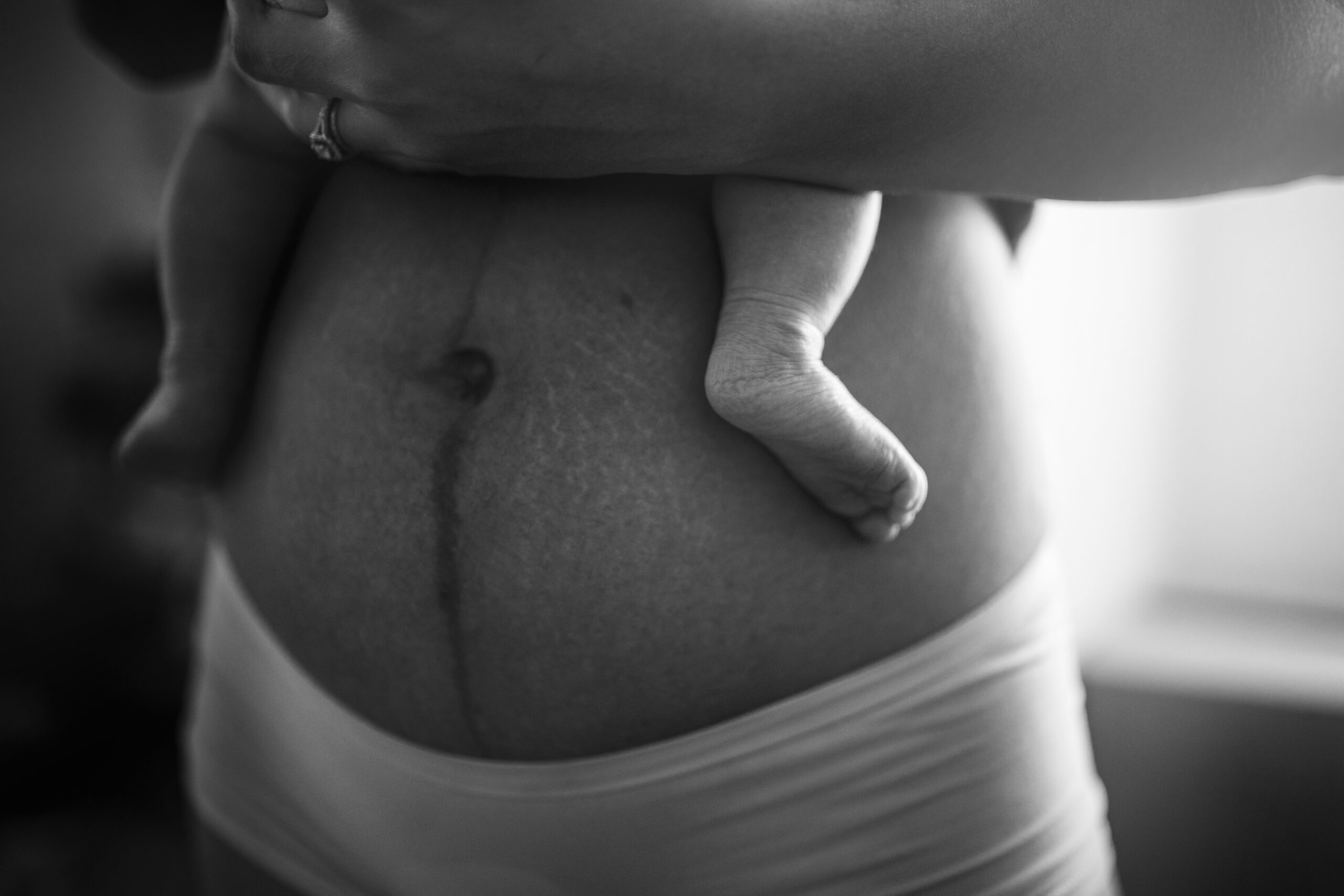Postpartum anxiety: what it looks like and how to cope
Having a baby brings joy, but it can also trigger unexpected feelings of worry and fear. While many new mothers experience the “baby blues” — which affect approximately 70-80% of all new mothers and typically begin 2-3 days after birth with feelings that come and go — some face a more persistent challenge: postpartum anxiety.

What is postpartum anxiety?
Postpartum anxiety is a common mental health condition that affects approximately 18% of women after giving birth. Research shows it’s actually more common than postpartum depression, which affects about 1 in 7 to 1 in 8 mothers in the U.S.
Even more striking, a recent study found that nearly 50% of women experience some level of anxiety postpartum: 30% mild, 8% moderate, and 3% severe. These numbers highlight how normal—yet underrecognized—anxiety can be during this transformative time.
How postpartum anxiety differs from postpartum depression
While depression and anxiety often overlap, they present differently. Postpartum depression typically involves persistent sadness, loss of interest in activities, feelings of worthlessness, changes in sleep and appetite, and difficulty bonding with your baby.
Postpartum anxiety, on the other hand, manifests as excessive worry about your baby’s health and safety, racing thoughts that are difficult to control, physical symptoms like heart palpitations or shortness of breath, difficulty sleeping even when your baby is asleep, and fear of being left alone with your baby.
According to the Maternal Mental Health Leadership Alliance, maternal mental health disorders—including anxiety—are the leading complication of childbirth, affecting 1 in 5 U.S. women overall.
Common symptoms of postpartum anxiety
Postpartum anxiety can manifest in various ways across physical, behavioral, and mental dimensions.
Physical symptoms often include constant fatigue despite opportunities to rest, muscle tension and headaches, nausea or stomach issues, rapid heartbeat or chest pain, and hyperventilation during moments of panic.
Behaviorally, you might notice yourself checking on the baby excessively, feeling unable to sit still or relax, seeking constant reassurance about your baby’s health, avoiding certain situations out of fear, or developing rigid routines to maintain a sense of control.
Mentally, many women experience intrusive thoughts about something bad happening to their baby, constant “what if” thinking, difficulty concentrating, feeling on edge or unable to relax, and an overwhelming sense of dread that seems difficult to shake.
Risk factors for developing postpartum anxiety
Research published in PMC has identified several factors that may increase your risk of developing postpartum anxiety. These include a history of anxiety or other mental health issues, smoking during pregnancy, experience of domestic violence, having a baby with current health problems, limited social support, and higher depression screening scores.
Protective factors that may reduce your risk include strong mother-infant bonding, feeling well-supported by healthcare professionals, and having a stable income. Understanding these risk factors can help you and your healthcare providers anticipate and address potential challenges early.
How to cope with postpartum anxiety
Mindfulness techniques
Mindfulness can help ground you when anxiety takes over. Deep breathing practices—inhaling for four counts, holding for two, and exhaling for six—can activate your parasympathetic nervous system and reduce physical symptoms of anxiety.

Body scanning involves taking a few minutes each day to mentally scan your body from head to toe, noticing areas of tension and consciously relaxing them. This practice can help you recognize anxiety symptoms earlier.
Present-moment awareness techniques encourage you to gently bring your attention back to your current surroundings using your five senses when intrusive thoughts arise. This can help break the cycle of anxious thinking.
You can find guided mindfulness exercises specifically designed for postpartum anxiety in various wellness apps and resources.
Professional support
Don’t hesitate to seek professional help. According to the CDC, approximately 70% of postpartum women with mental health conditions who receive proper care see significant improvement.
Talk therapy, particularly Cognitive Behavioral Therapy (CBT), has shown effectiveness for anxiety disorders. A therapist can help you identify thought patterns contributing to your anxiety and develop healthier ways of responding.
Some anti-anxiety medications are compatible with breastfeeding. A healthcare provider knowledgeable about perinatal mental health can discuss options that balance your mental health needs with breastfeeding goals.
Support groups, whether in-person or online, connect you with other mothers experiencing similar challenges, providing validation and practical coping strategies from those who truly understand.
Building a support system
Creating a network of support is crucial for managing postpartum anxiety. Be specific about your needs instead of saying “I’m fine”—tell loved ones exactly what would help, whether it’s a meal, watching the baby while you shower, or just listening without offering advice.

Connect with other mothers through local or online parenting groups where you can share experiences without judgment. Schedule regular breaks when someone else cares for your baby, even if just for 30 minutes, to give yourself space to reset.
Don’t be afraid to limit visitors if you’re feeling overwhelmed. It’s perfectly acceptable to postpone visits until you feel more grounded. Remember that caring for your emotional health is as important as your physical recovery after childbirth. For more information on postpartum emotional needs, visit our Early Postpartum Support article.
When to seek immediate help
While anxiety is common, some symptoms warrant immediate attention. Reach out to a healthcare provider right away if you experience thoughts of harming yourself or your baby, panic attacks that interfere with caring for yourself or your baby, anxiety that prevents you from sleeping or eating, or symptoms that worsen despite self-care efforts.
According to the Policy Center for Maternal Mental Health, maternal mental health disorders are treatable—but only when identified and addressed promptly. Don’t wait until you reach a crisis point; early intervention leads to better outcomes.
Moving forward with self-compassion
Recovery from postpartum anxiety isn’t linear. Some days will feel better than others. Practice self-compassion by celebrating small victories, avoiding comparison to other mothers, reminding yourself that having anxiety doesn’t make you a bad mother, and speaking to yourself as kindly as you would to a friend facing the same challenges.
The transition to motherhood transforms your identity, relationships, and daily life. It’s natural for this massive change to trigger anxiety. By recognizing the symptoms and implementing coping strategies, you can navigate this challenging period and emerge stronger.
Remember: You don’t have to face postpartum anxiety alone. Reach out for support, prioritize self-care, and trust that with time and proper care, these intense feelings will become more manageable.

